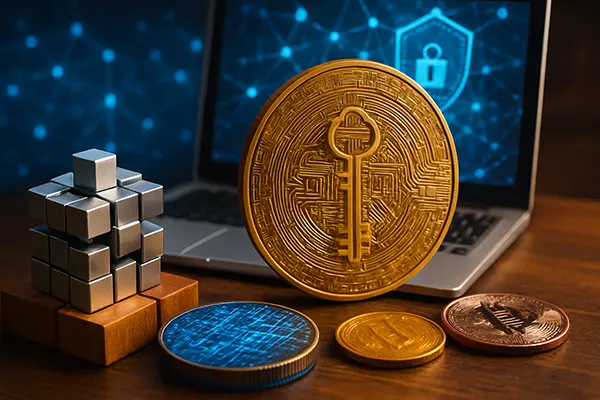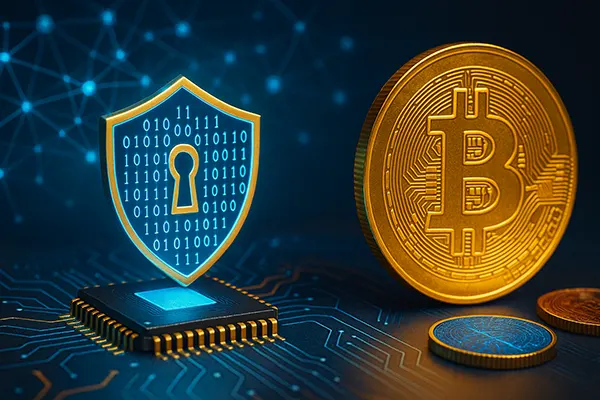
How to Use Zero-Knowledge Proofs (ZKP) in DeFi and Blockchain: Practical Use Cases
Zero-knowledge proofs (ZKP) have become a fundamental component of blockchain innovation. By allowing one party to prove knowledge of certain information without revealing the information itself, ZKPs provide a balance between transparency and privacy. In decentralised finance (DeFi), this technology helps address challenges such as scalability, compliance, and security while maintaining user confidentiality. In this article, we will explore how ZKPs are applied in real-world blockchain projects and why they are crucial for the future of DeFi.
Enhancing Privacy in Financial Transactions
One of the most important applications of ZKPs is the improvement of transaction privacy. Traditional blockchains like Bitcoin and Ethereum display transaction details publicly, which can lead to concerns about user anonymity. Zero-knowledge technology makes it possible to confirm the validity of a transaction without revealing the sender, recipient, or amount transferred.
Projects such as Zcash pioneered this approach, demonstrating how zk-SNARKs can hide transaction details while still ensuring the integrity of the blockchain. More recently, Ethereum-based protocols have adopted zk-proofs to allow private transfers and shielded accounts within DeFi applications.
For users, this means they can enjoy financial services such as lending, borrowing, and asset exchange without exposing sensitive data to the public. Privacy is not only about confidentiality but also about security, as reducing exposed information lowers the risks of targeted attacks and financial surveillance.
Practical Privacy Use Cases
Privacy-preserving stablecoins are one example where ZKPs are actively used. These tokens enable individuals to store and transfer value with the same stability as popular fiat-backed assets but without disclosing transactional details. Such tools are increasingly relevant in jurisdictions where data protection laws are strict, and users expect stronger confidentiality.
Another practical case is decentralised identity verification. Through ZKPs, a user can prove their eligibility to use a financial service (for example, being over 18 or residing in an approved jurisdiction) without sharing personal documents. This balances compliance requirements with the principle of minimised data exposure.
Additionally, ZKPs are being adopted in cross-chain swaps, where assets can move between networks with proof of validity provided without exposing all the transaction data to external chains. This creates a safer environment for interoperability and multichain ecosystems.
Improving Scalability and Efficiency
Beyond privacy, zero-knowledge proofs are essential for scaling blockchain networks. High transaction costs and network congestion remain some of the biggest barriers to mainstream adoption of DeFi. ZKP-based rollups have emerged as a solution, bundling multiple transactions off-chain and submitting a single proof on-chain to verify them all at once.
zk-Rollups are now integrated into Ethereum scaling solutions such as zkSync and StarkNet. These systems can handle thousands of transactions per second while significantly reducing gas fees. As a result, developers can create user-friendly applications without forcing users to pay excessive fees.
Efficiency improvements also reduce the environmental footprint of blockchain technology. By decreasing the computational resources required for transaction validation, ZKPs help align DeFi with global sustainability goals, making blockchain adoption more practical for governments and institutions.
Real-World Scalability Examples
zkSync, developed by Matter Labs, has been a leading project implementing zk-rollups. It allows Ethereum users to interact with decentralised applications at a fraction of the cost while keeping security consistent with the Ethereum mainnet.
StarkWare’s StarkNet introduces STARKs (Scalable Transparent Arguments of Knowledge), which differ from zk-SNARKs by not requiring a trusted setup. These solutions have been adopted by major DeFi projects, including decentralised exchanges and NFT platforms, to provide high throughput and efficiency.
Polygon, another widely used blockchain network, has invested heavily in zkEVM (zero-knowledge Ethereum Virtual Machine). This innovation ensures compatibility with existing Ethereum applications while delivering improved performance and lower transaction costs.

Strengthening Security and Compliance
Zero-knowledge proofs also address critical concerns related to security and regulation in the DeFi ecosystem. By verifying user actions without revealing all underlying details, ZKPs reduce the risks of fraud and data misuse. This is particularly relevant in preventing double-spending and ensuring the integrity of smart contract execution.
Regulators increasingly demand solutions that enable compliance without compromising privacy. ZKPs can confirm that a transaction follows anti-money laundering (AML) or know-your-customer (KYC) standards without publicly disclosing the sensitive data involved. This helps projects align with legal requirements while protecting users’ identities.
As blockchain adoption continues to grow, the ability to maintain compliance while respecting personal privacy will be a deciding factor in the global acceptance of decentralised financial systems. Zero-knowledge proofs provide a pathway to achieve this balance effectively.
Compliance-Oriented Implementations
One concrete example is zkKYC solutions, where users prove their verified identity without exposing the documents used in verification. Financial institutions and DeFi platforms are increasingly integrating these systems to ensure responsible onboarding.
Another application is in proof-of-reserves audits for centralised exchanges. By using ZKPs, exchanges can prove they hold sufficient assets to back user balances without exposing full details of their wallets. This increases transparency while minimising risks of targeted attacks.
Lastly, ZKPs support secure voting mechanisms within decentralised autonomous organisations (DAOs). Members can demonstrate voting eligibility and submit ballots without linking their decisions to identifiable wallets, maintaining integrity and fairness in governance.


